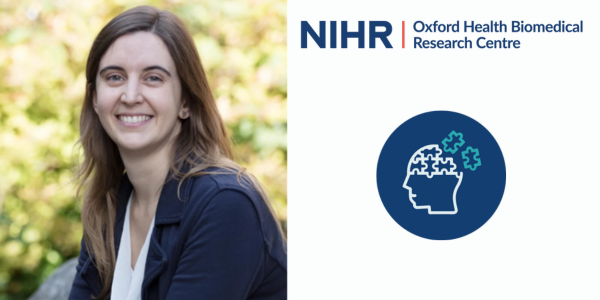
Dr Ludovica Griffanti is Associate Professor in the University of Oxford’s Department of Psychiatry and Alzheimer’s Association Research Fellow at the Wellcome Centre for Integrative Neuroimaging (WIN). Her research focuses on neuroimaging methods applied to ageing, dementia and neurodegeneration in the Oxford Health BRC Dementia Theme.
Dr Griffanti was one of seven mid-career researchers appointed as NIHR Oxford Senior Research fellows and identified as having the potential to become a future translational research leader.
Read more about Dr Griffanti’s career in research:
How has your education pathway led you into your current role?
I completed my undergraduate studies and a PhD in Bioengineering at Politecnico di Milano (Italy), where I specialised in neuroimaging analysis methods, specifically for brain Magnetic Resonance Imaging (MRI). I then moved to the University of Oxford as a postdoctoral researcher at the Wellcome Centre for Integrative Neuroimaging. In 2020 I was awarded an Alzheimer’s Association research fellowship and in 2023 an NIHR Oxford Senior Research Fellowship. Since I started my research career, I have always worked in clinical research projects, predominantly in dementia and neurodegeneration. The NIHR Oxford Health BRC represents the perfect interface between research and clinical practice where I believe my work can have a real impact on patients.
When did you start working at Oxford Health BRC?
Since when I moved to Oxford in 2014, I have been involved in several projects supported by NIHR Oxford BRC and NIHR Oxford Health BRC, either directly as part of my role or in close collaboration.
When did you become interested in research?
I had the opportunity to complete two short research projects as part of my undergraduate studies in bioengineering. Both projects were in a hospital setting, which sparked my interest in research as close as possible to clinical practice. I have always enjoyed working in highly multidisciplinary teams, and I am passionate about finding technological solutions that could benefit patients.
What are you working on at the moment?
I currently work at the Oxford Brain Health Clinic, a joint clinical-research service for patients with memory problems. Attendees receive high-quality assessments, including an MRI scan and cognitive testing, and are given the opportunity to join the BHC Research Database and complete additional research assessments during their clinical appointment.
We are building technological solutions to efficiently analyse brain MRI scans, by accurately measuring the volumes of brain structures from MRI images and comparing them to a normative reference. This information is currently used to conduct research studies in this real-world memory clinic population, but we are also working towards developing a tool that could support clinical decision making for dementia diagnosis.
I also very much enjoy teaching MRI analysis methods to MSc students, PhD students and other researchers, either as part of their degree or at the international FSL course.
What would you say to others about a career in research?
For me it is a very fulfiling career, and no day is the same as another. A lot of occasions for exciting new research questions, projects and collaborations. I don’t deny it has its own challenges, especially related to the high competition and uncertainty around securing funding, but hopefully I will be able to continue my line of translational research.
What are you plans for the future?
I am involved in several projects that aim to develop technological solutions to extract clinically relevant information from brain scans, either acquired as part of a research study or for routine clinical assessment. My long-term goal is to bridge the gap between research and clinical practice, so that knowledge and innovation from research can directly benefit patients and their families.


